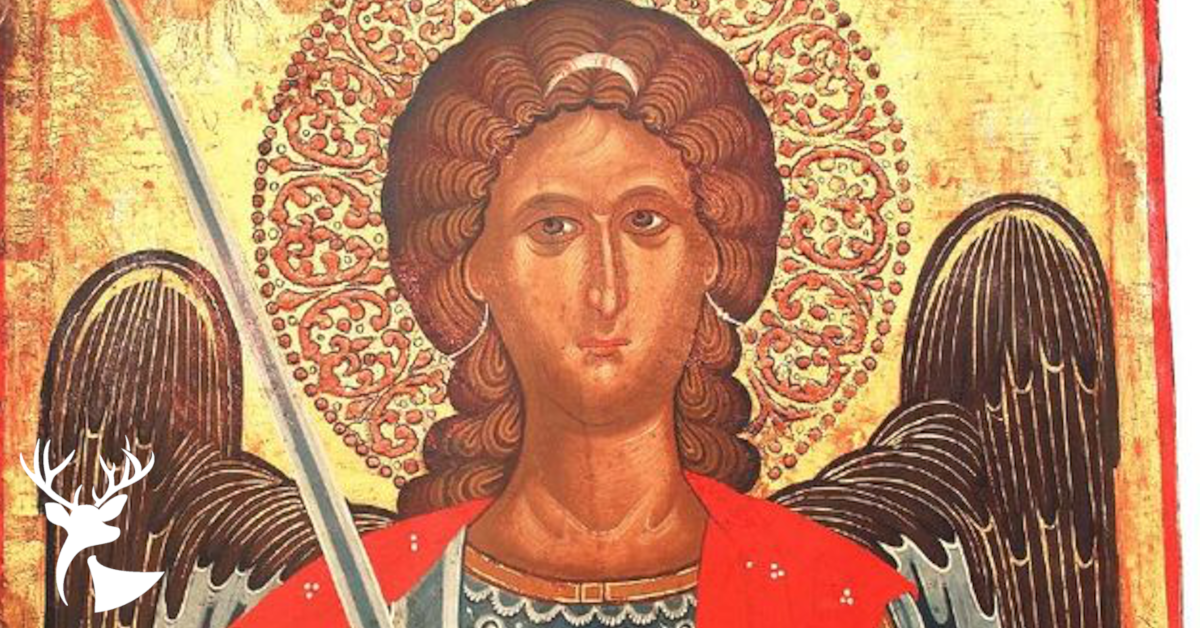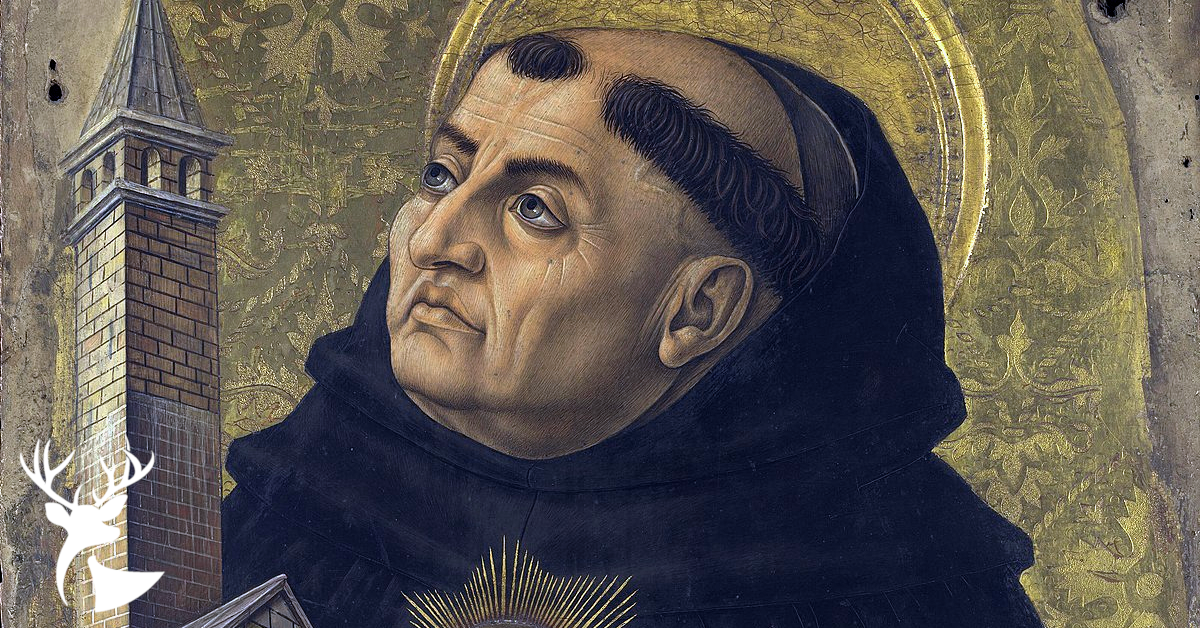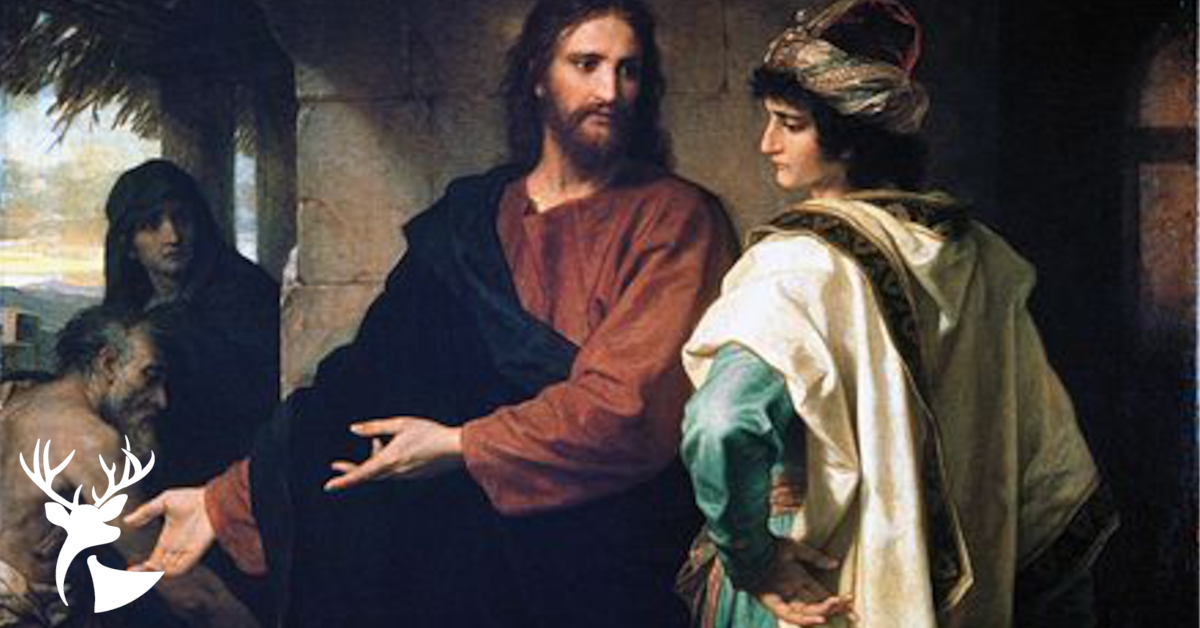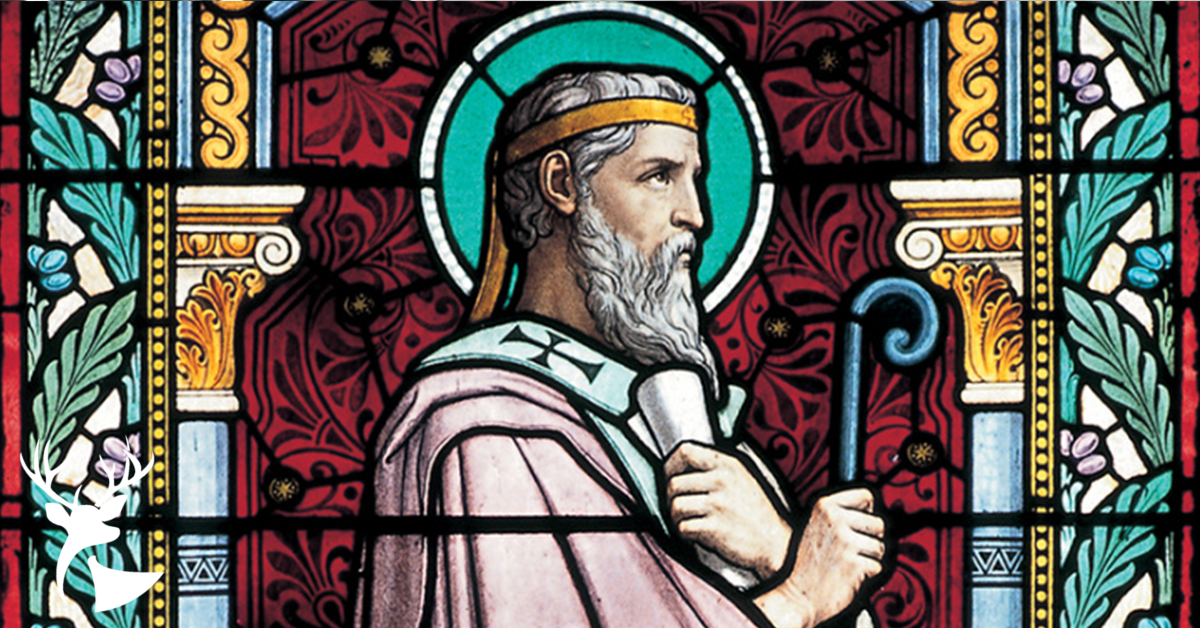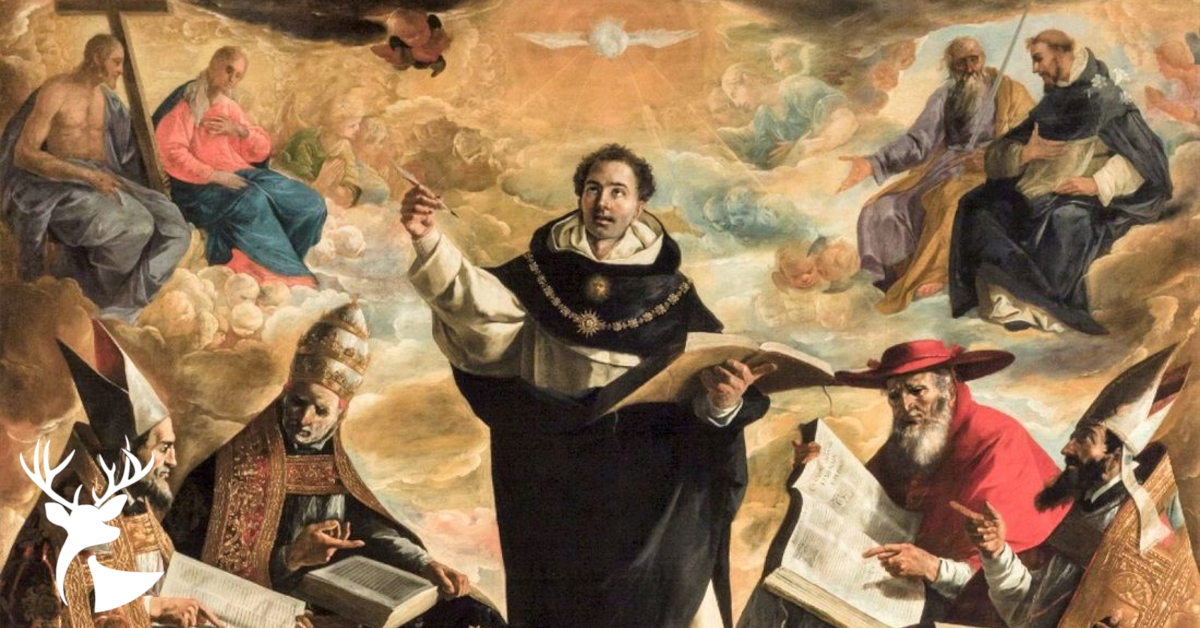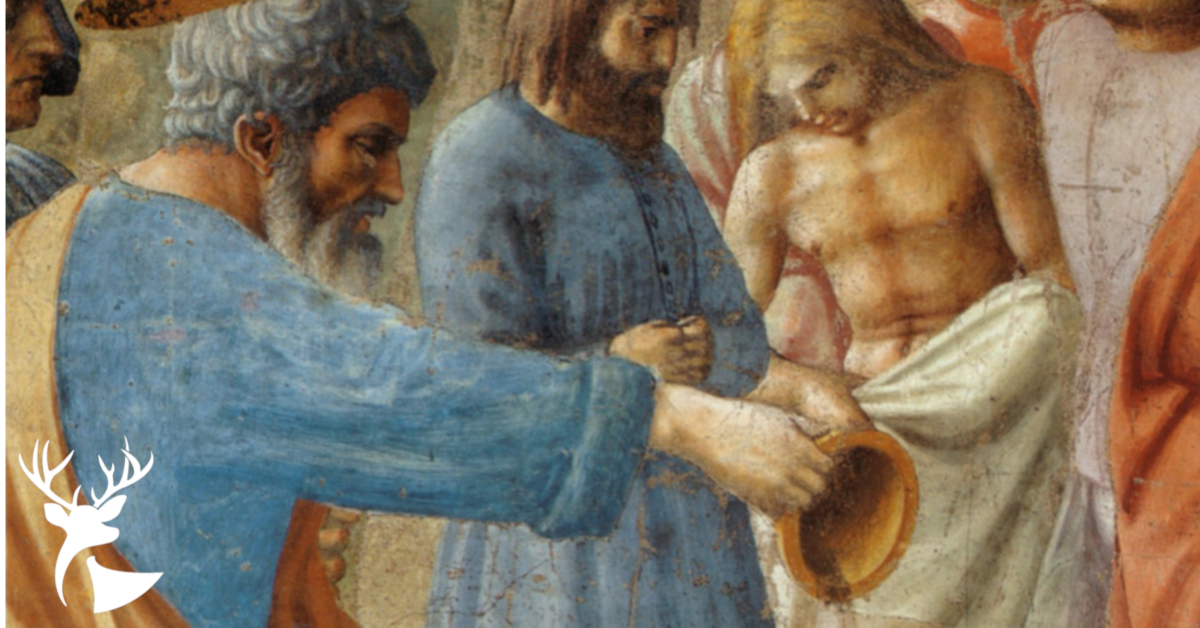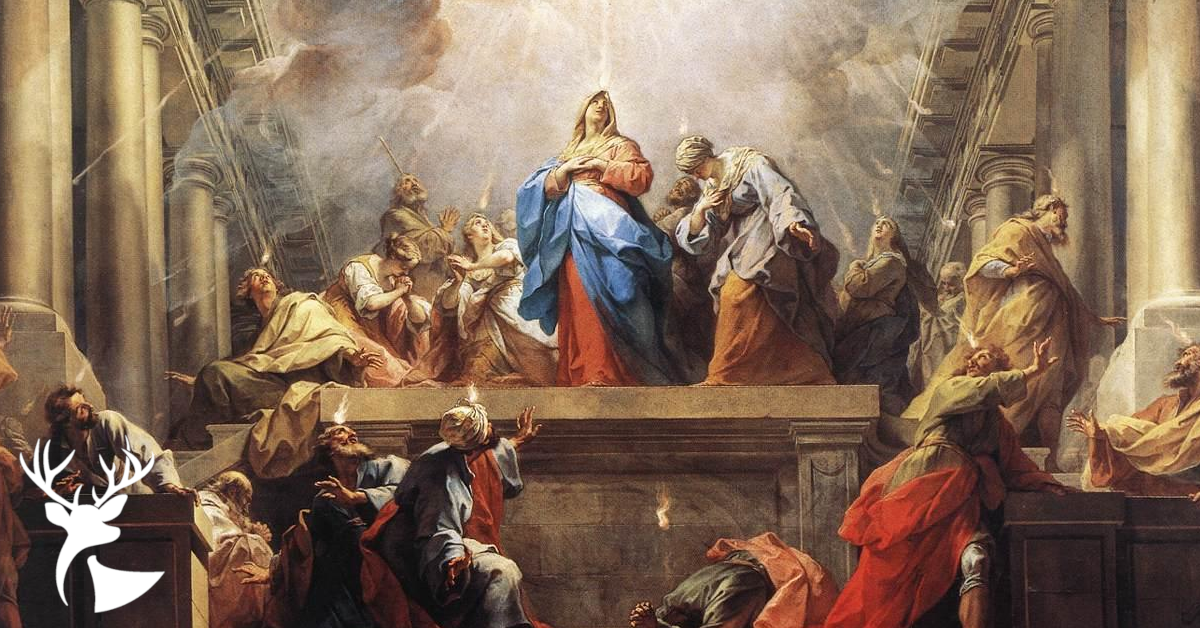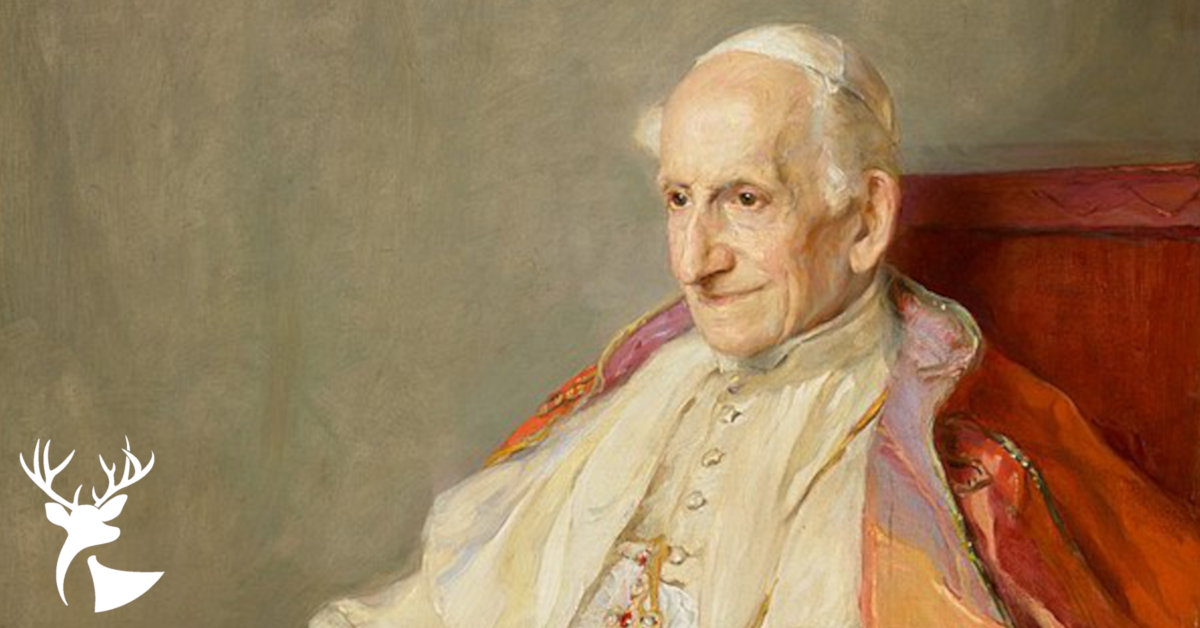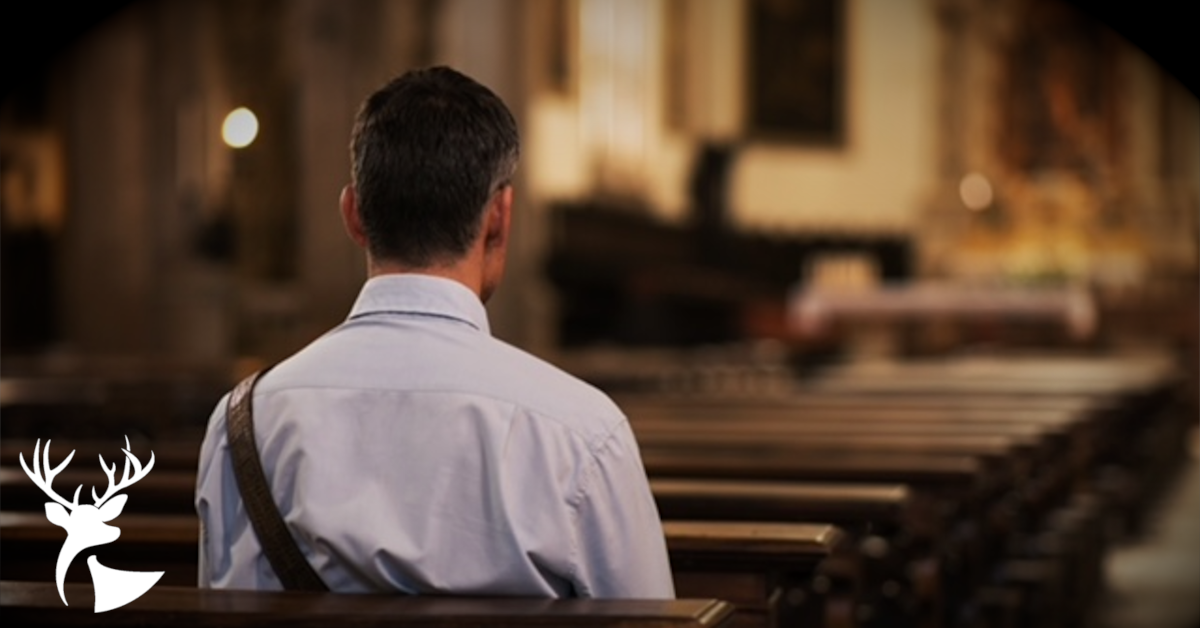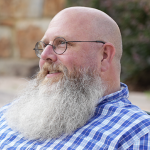
Joey Spencer is a Tutor for the Alcuin Institute for Catholic Culture, and serves as the Archivist for the Diocese of Tulsa.
Joey Spencer is a Tutor for the Alcuin Institute for Catholic Culture, and serves as the Archivist for the Diocese of Tulsa.
← Return to EssaysStay Connected!
“Now of all those who are able to enjoy God together with us, some we love as people we can help, some as people we can be helped by, some as ones both whose help we need, and whose needs we help to meet, while there are some on whom we ourselves confer no benefits, and from whom we do not expect any either. Still, we ought to want all of them to love God together with us, and all our helping them or being helped by them is to be referred to that one single end.”
—St. Augustine
Teaching Christianity
Sacred Scripture reveals through salvation history that God calls every person to Himself. Those who respond to their vocation and turn to the Lord are often used for the conversion and salvation of others. Conversion does not always occur in a single moment but sometimes is a process of coming to God over time. The theology of conversion is not only seen in Sacred Scripture, but also in the lives and theology of the saints.
St. Augustine is an example of a saint who was converted over time, and, thus, his theology is one of constant conversion. The Church, according to St. Augustine, is full of saints and sinners: saints who have converted from a sinful life to one of holiness and sinners who have not yet let the old man die so that the new man might live. Likewise, there are Saints who fall into sin, and the most wretched of men who become martyrs for Christ. To participate in the life of the Church is to participate in flux.
“In any case, those who appear to be bad today may be good tomorrow, just as those who today are proud of their own goodness may tomorrow turn out to be bad,” he wrote.
To be a member of the Body of Christ is to participate in a life of ongoing conversion, sometimes being used by God in the conversion of others, sometimes using others as an example of conversion for oneself. Conversion does not occur in a vacuum; it is both relational and a struggle over time. The relational experience of conversion can be understood as a fundamental element in Augustine’s own conversion and, therefore, works its way into Augustine’s theology and pastoral approach to those whom he served as Bishop of Hippo.
For Augustine, the Church on earth is like a hospital, filled with many people at different levels of spiritual health and healing. There are those who suffer from grievous, near fatal wounds, wounds that others turn their eyes away from in disgust, hard wounds to heal. Likewise, there are those who are well on their way to recovery, a recovery that becomes an example to those who are still in the process of healing. Finally, there are also saints, priests and bishops who are charged with being the doctors in this spiritual hospital.
The Church is the dispensary of God’s healing medicine. “And since the same medicine is not to be applied to all, although to all the same love is due, so also love itself is in travail with some, becomes weak with others; is at pains to edify some, dreads to be a cause of offence to others; stoops to some, before others stands with head erect; is gentle to some, and stern to others; and enemy to none, a mother to all.” Healing in the Church is done through conversion to Christ, and converts to Christ become an example to others helping them in their own conversion.
Once man as an individual is in a proper relationship with God, this love of God is expressed through the love of others, the Church. As Christ laid down his life for us out of love, we also are called to sacrifice ourselves for others. “And for this reason, that inasmuch as love is the end of the commandment and the fulfillment of the law, we also may love one another, and even as He laid down His life for us, so we also may lay down our life for the brethren,” stated Augustine.
While laying down our life for the other is the ultimate sacrifice, love for our brethren can be expressed in other ways as well. Our expression of joy in living a life of faith in God can become an example for others in the Church. Augustine uses the example of coal. Those who have no faith or have gotten lost in a life of sin are likened to dead coal. Those who are living a life in Christ and are on fire in their faith are considered live coals. All that is needed to bring the dead coal to life is to be placed next to a burning coal. It brings great joy to the whole Church to see the effects of conversion, life in Christ, in someone who had been dead in sin.
“But while you praise this live coal− if you praise him wisely −you will apply him to another who is dead, and set fire to him or her as well,” he said.
In this way, the Church grows exponentially through Christ and His saints. Christ uses those in His Church for the conversion of others. Just as our life must be given for the good of others, so also our knowledge of Christ and the precepts of the Christian faith must be given over to others so that they might use what we have for their own use to enjoy God in the Holy Trinity.
Augustine expresses this well when he compares our sharing of what God has given us with others to the miracle of the loaves and fish. “So just as that bread increased in quantity when it was broken, in the same way all the things the Lord has already granted me for setting about this work will be multiplied under his inspiration, when I start passing them on to others.” Sharing what God has given us with our brethren is not only beneficial to them, but to the individual sharing it as well. Also, loving one’s brethren is the greatest form of loving God.
Augustine knew that there were those in the Church who did not yet belong to the Church and that they could be a source of scandal within the Church. And yet, while he disliked them, he loved them all the same.
“Today I hate such wicked and perverted people, though I love them as people in need of correction, so that instead of money they may prefer the doctrine which they learn and, above the doctrine, may prefer you, God, the truth, the abundant source of assured goodness and most chaste peace.” Augustine knew from his own experience that God works on people over time.
He unpacked Sacred Scripture to his flock and corrected their errors while never losing hope that some of those who were in the Church but not part of Christ’s body would come to conversion just as he had.
Augustine wrote, “True, it is hidden from us when it is that one whom we now see present in the body does really come in spirit; nevertheless, we should deal with him in such a manner that he may conceive this desire even though it does not as yet exist.”
It is not known when God will act on the sinner’s heart and predispose the person to conversion, but out of love for one’s brethren there must be hope and prayer. Sinners and scandal will always be present in the Church, but like a hospital, the Church exists for the salvation of those people.
“But if our mind is troubled by some scandal and so is unable to produce a calm and agreeable discourse, so great should be our love towards those for whom Christ died, desiring to redeem them by the price of His own blood from the death of the errors of this world that the very fact of the word being brought to us in our dejection that someone is at hand who desires to become a Christian should have the effect of alleviating and dispelling our grief, even as the joy over gains is wont to alleviate grief over losses,” he taught.
The scandal cannot overcome the joy in just one person who decides to become a Christian, and those who are already in the Body of Christ should seek out those who remain outside. We live in tumultuous times. It is our job to be the live coals, a source of love and conversion to others, spreading the Gospel of Jesus Christ to those both within the Church and without.
More Reading

Joey Spencer is a Tutor for the Alcuin Institute for Catholic Culture, and serves as the Archivist for the Diocese of Tulsa.


